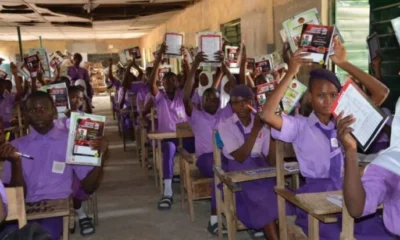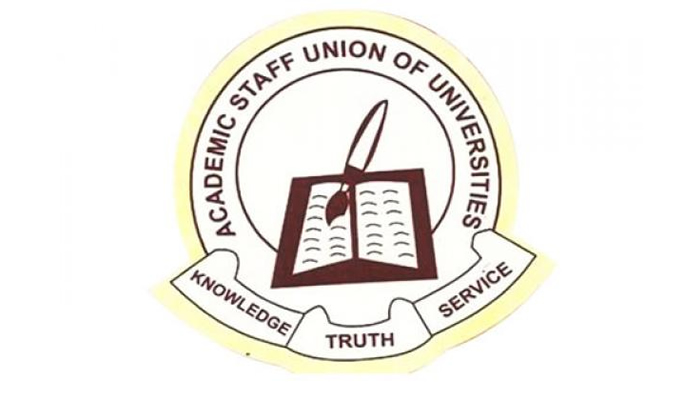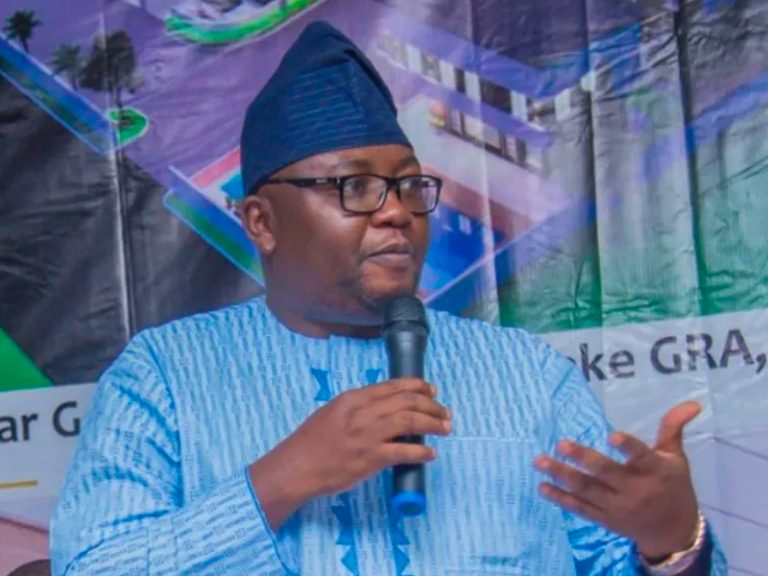The Academic Staff Union of Universities has warned that “in the absence of visible and concrete efforts at addressing pending issues and meeting its expectations, 2025 will be a year of long-drawn confrontation between the union and the Federal Government.”
Describing efforts made by the Federal Government to address its issues last year as window-dressing and cosmetic, ASUU said the FG made no major difference in the university education sector, continued its neglect of the university system, and failed to satisfactorily resolve its issues in the year 2024.
According to the Chairman of ASUU, Ibadan chapter, Prof. Ayo Akinwole, in a statement on Wednesday, the uninterrupted academic calendar in 2024 was a result of the sacrifice of the union, not that the government had addressed its impending issues.
The union flayed the FG over policy summersault in the 18 years benchmark for admission into tertiary education and asked the President Bola Tinubu government to, instead of embarking on a fresh renegotiation of the agreement, set in motion a process that will lead to the review and signing of the Nimi Briggs-led renegotiated draft agreement.
The ASUU chairman said the FG continuously failed to put machinery in motion to address its long-drawn issues of “non-provision of funding for the revitalization of public universities based on the FGN-ASUU MoU of 2012, 2013, and the MoA of 2017; non-release of the three and a half months of the withheld salaries; non-release of third-party deductions like scheduled loans repayments, personal savings to retirement schemes and cooperative contributions.”
The union listed other pending issues as non-release and payment of arrears of Earned Academic Allowance (EAA); the creeping fascism in some Nigerian universities; the problem associated with the proliferation of public universities; non-implementation of the reports of the Visitation Panels; non-implementation of UTAS in place of IPPIS and non-renegotiation of 2009 FGN/ASUU Agreement.
“These pending issues were yet to be satisfactorily resolved in 2024 and will, no doubt, define the trajectories of the relationships between our Union and the Federal Government in 2025. Having reviewed the state of education in Nigeria in 2024, it is time to set an agenda for 2025.
“Fellow Nigerians, given the usual adamant posture of the Federal Government to satisfactorily address the pending issues concerning the education sector in general and the university system in particular, we expect that the year 2025 may, if care is not taken, be a year of another challenge and struggle.
“In the absence of visible and concrete efforts at addressing the pending issues and meeting our expectations, there is likely to be a long-drawn confrontation between our Union and the Federal Government, which will probably lead to another round of untold avoidable crisis in the university system in Nigeria.
“Given the important role of education in national development, it is expected that the Government should show a sincere commitment to reversing the downward trend in basic education by engaging in a total overhaul of the sector through the provision of basic facilities, such as good classrooms, desks, and chairs which will address the issues of over-crowding and dilapidation.
“The remuneration of the teachers should be reviewed to attract and recruit qualified teachers. Critical and concerted efforts should be deployed to tackle the high rate of out-of-school children in Nigeria, considering that education is the fundamental right of every Nigerian child.
“We also expect that the withheld three and a half months’ salaries and third-party deductions owed our members should be paid forthwith. We also expect that the Earned Academic Allowances (EAA) should be released, just as we expect that the funding for the revitalisation of the universities should be released by the FGN-ASUU MoU of 2012, 2013, and the MoA of 2017.
“The welfare of workers in the education sector and Nigerian workers is paramount, considering the state of the national economy and high cost of living, which has deepened the erosion of the conditions of service of our members.
“We, therefore, expect that the Nimi Briggs-led renegotiated draft agreement should be quickly reviewed in line with current economic indices and signed and that the university lecturers’ salaries should be restored to the African average which was the spirit of the 2009 Agreement, leading to the pegging of the professorial salaries at $3,000, which, in 2025, has amounted to paltry $200 due to the deterioration of the Nigerian Naira against the US dollar.
“It is also our expectation that the attack on TETFund should cease and the idea of commodifying university education in Nigeria should be dropped. Instead of borrowing bad examples from Britain and other capitalist countries, we should, as a developing country, borrow from countries like Germany, where education at all levels is free and properly funded.
“The welfare of workers in the education sector and Nigerian workers is paramount, considering the state of the national economy and high cost of living, which has deepened the erosion of the conditions of service of our members.
“We, therefore, expect that the Nimi Briggs-led renegotiated draft agreement should be quickly reviewed in line with current economic indices and signed and that the university lecturers’ salaries should be restored to the African average which was the spirit of the 2009 Agreement, leading to the pegging of the professorial salaries at $3,000, which, in 2025, has amounted to paltry $200 due to the deterioration of the Nigerian Naira against the US dollar.
“It is also our expectation that the attack on TETFund should cease and the idea of commodifying university education in Nigeria should be dropped. Instead of borrowing bad examples from Britain and other capitalist countries, we should, as a developing country, borrow from countries like Germany, where education at all levels is free and properly funded.
“Part of our expectations is that the long-standing challenges associated with the payment mode should be laid to rest in 2025 by the implementation of UTAS.
“Government as a matter of urgency should reverse the downward trend of public universities by deliberately restoring true hope for the children of the people who do not have any option of private university or overseas studies.
“Comrades, in this new year, let us summon more courage to act against the threat to knowledge and human dignity. Consequently, we advise our members to continue to remain vigilant and continue their support to the leadership of the Union at all levels. Let’s brace up for the crisis that may arise should our expectations not be satisfactorily met in 2025. For a people United Can Never Be Defeated,” the statement read.
The ASUU also rejected the tax reform bills as an attempt to an attempt to destroy the major source of infrastructural funding for already struggling public tertiary institutions, and “commodify university education in Nigeria.”
Akinwole held that the education tax to be replaced by a “development levy,” would disrupt the revenue stream of the Tertiary Education Trust Fund, which has been a major source of funding for infrastructure development in many public tertiary institutions.
The ASUU chairman also described the 2025 budgetary allocation to education as inadequate and below the expected 15 per cent to 20 percent internationally-advised benchmark.
Similarly, in October 2024, President Bola Tinubu asked the National Assembly to consider and pass four tax reform bills. The bills include the Nigeria Tax Bill, the Nigeria Tax Administration Bill, the Nigeria Revenue Service Establishment Bill, and the Joint Revenue Board Establishment Bill. A part of the tax administration bill proposes eliminating the education tax, to be replaced by a “development levy.”
“This would effectively disrupt the revenue stream of the Tertiary Education Trust Fund (TETFund), an agency set up as a product of the ingenuity and struggles of ASUU, that has been the major source of funding for infrastructure development in many public tertiary institutions over the last decade. Since its establishment in 2011, TETFund has monitored the disbursement of education tax to public tertiary institutions in Nigeria.
“However, with this new bill, only 50 per cent of the monies accruing to the levy would go to TETFund in 2025 and 2026. TETFund’s share will be upped to 66 per cent in 2027, 2028, and 2029. Then, the agency would cease to get any revenue from 2030. From 2030, the development levy will be solely meant to fund the federal government’s student loan scheme. What this means is that the agency that funds infrastructural development in Nigerian tertiary institutions is under the threat of extinction by 2030. This misbegotten policy will have huge and adverse implications for the university system in Nigeria.
“This is, no doubt, an attempt to destroy the major source of infrastructural funding for already struggling public tertiary institutions. It is also an attempt to commodify university education in Nigeria.
“Recently, the president presented the 2025 proposed budget of N47.90 trillion before the 10th National Assembly, out of which N3.52 trillion was earmarked for the education sector. This is roughly 7% of the total budget, which falls far below the benchmark of 15%-20% educational budget for underdeveloped countries like Nigeria, specified by both UNESCO and the United Nations Fund for Population Activities (UNFPA), which has been advocated by our Union,” Akinwole said.

 BIG STORY1 day ago
BIG STORY1 day ago
 BIG STORY3 days ago
BIG STORY3 days ago
 BIG STORY1 day ago
BIG STORY1 day ago
 BIG STORY5 days ago
BIG STORY5 days ago
 BIG STORY3 days ago
BIG STORY3 days ago
 BIG STORY21 hours ago
BIG STORY21 hours ago
 BIG STORY3 days ago
BIG STORY3 days ago
 BIG STORY19 hours ago
BIG STORY19 hours ago
























